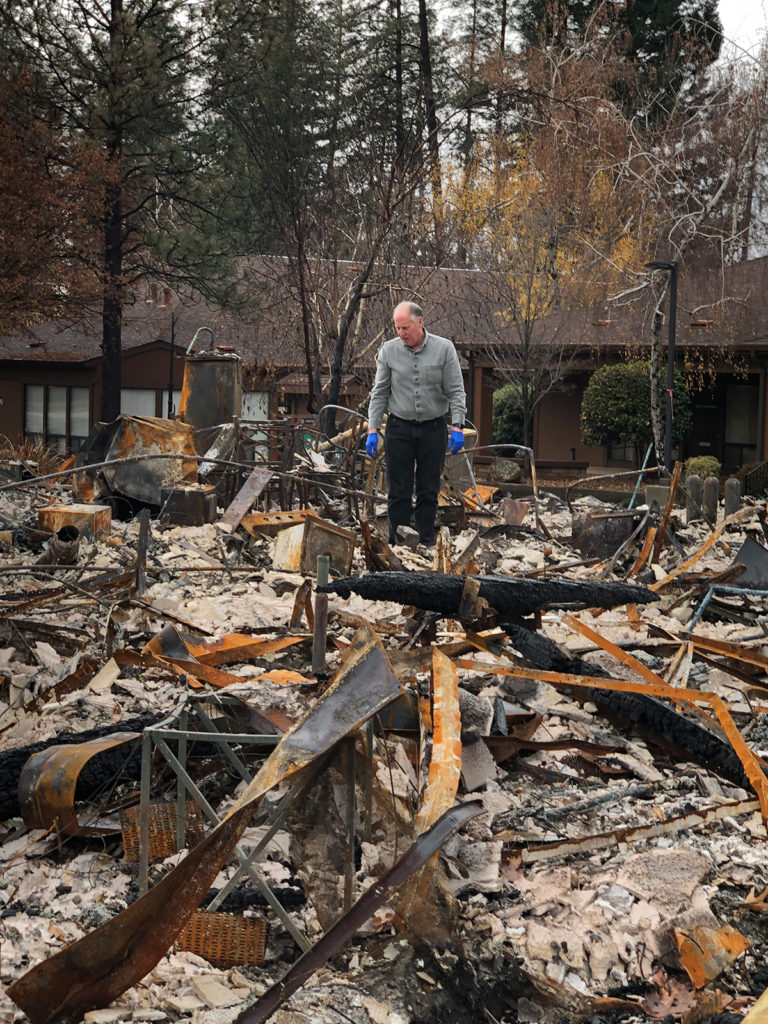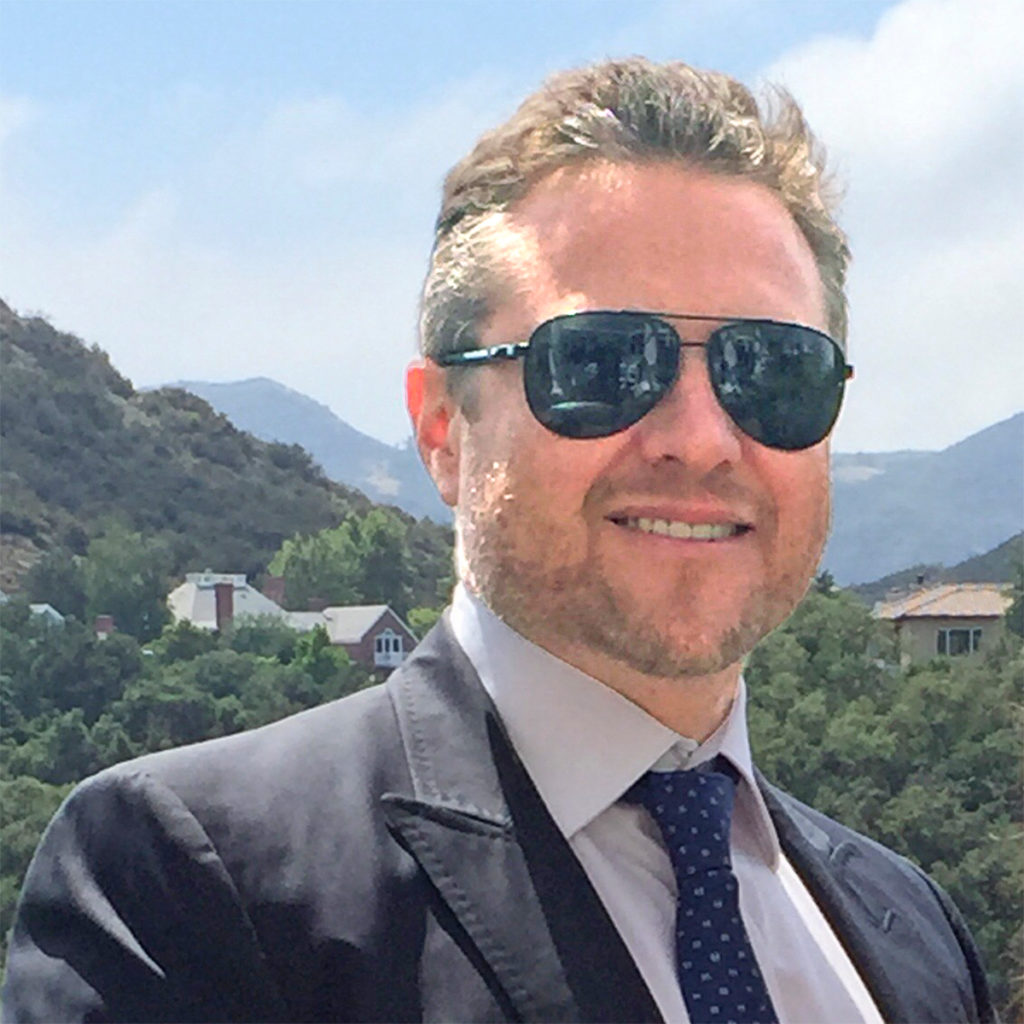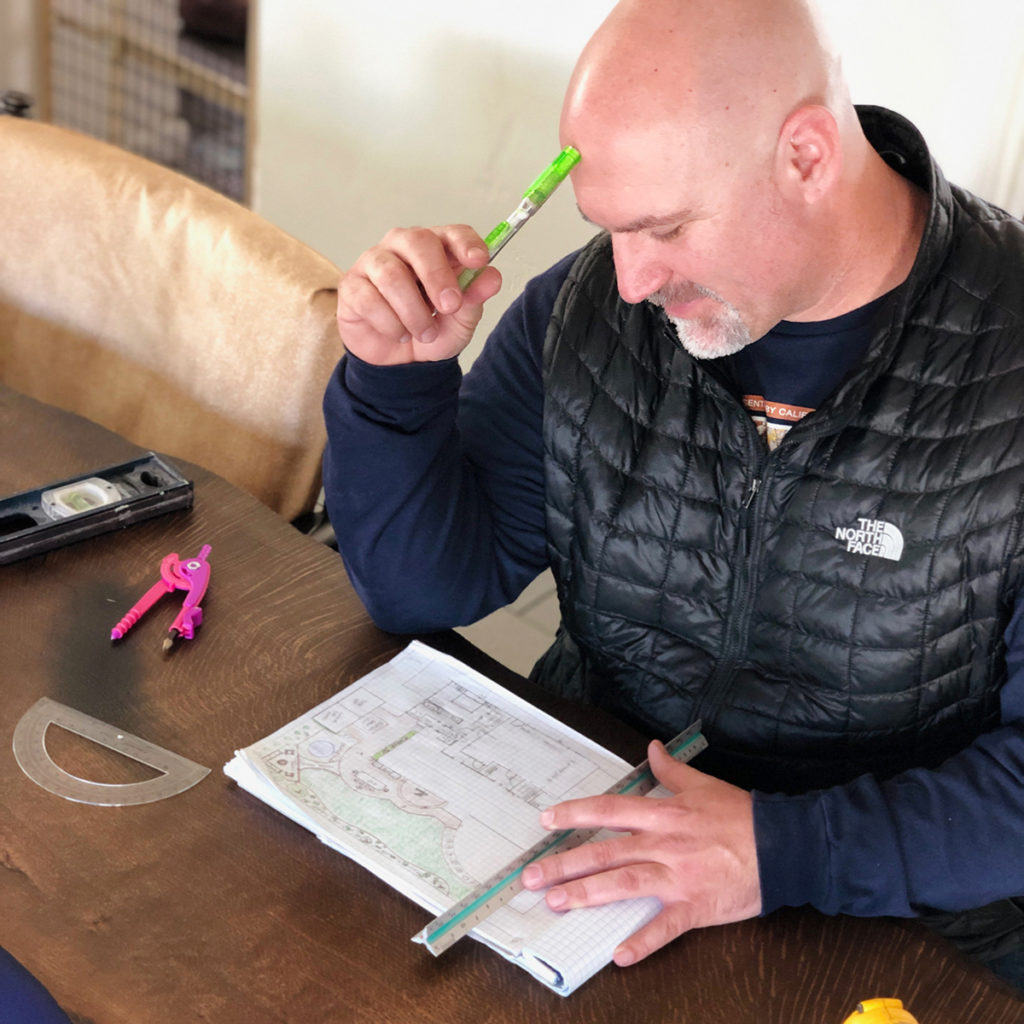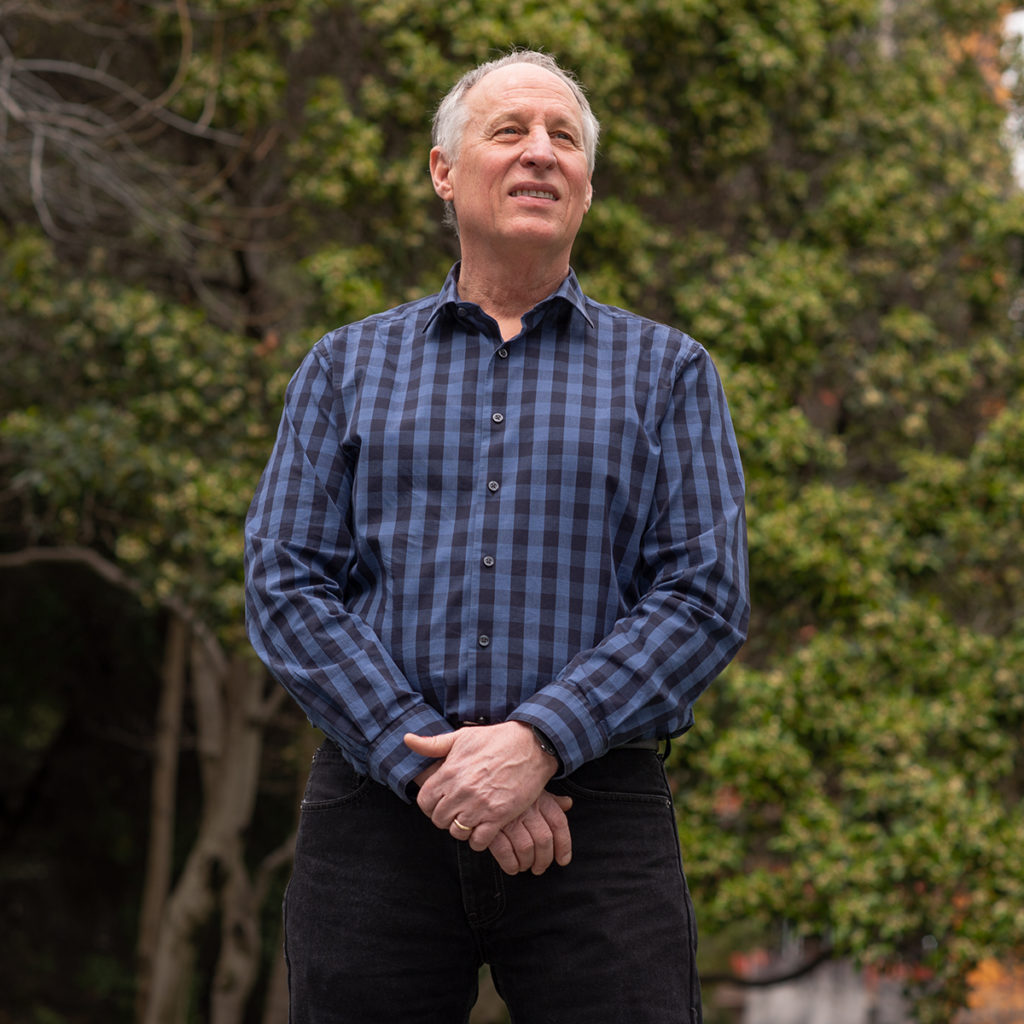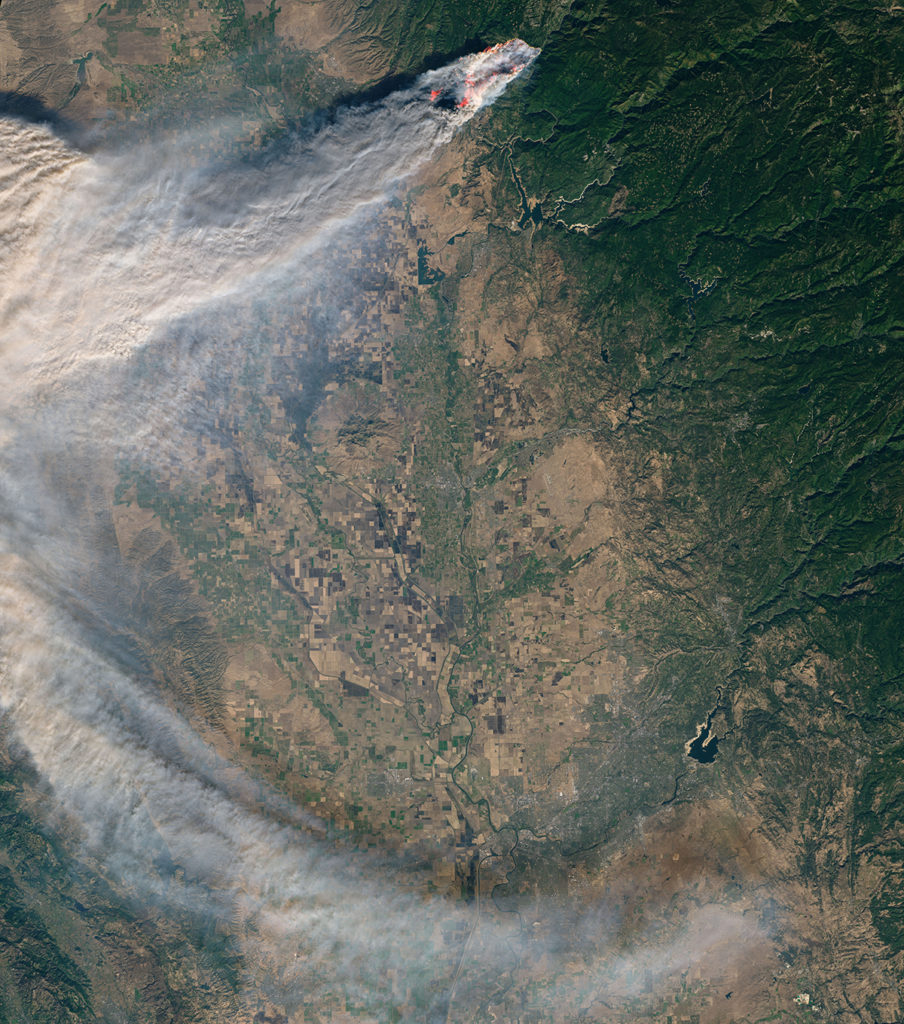By Kathleen A. Barrows
CAMP FIRE
Started Nov. 8, 2018; 100% Contained Nov. 25, 2018
Area Burned: 153,338 acres in Butte County
Fatalities: 86 civilian deaths, 3 firefighter injuries
Destruction: 13,972 residences, 528 commercial buildings, 4,293 other buildings
WOOLSEY FIRE
Started Nov. 8, 2018; 100% Contained Nov. 21, 2018
Area Burned: 96,949 acres in Los Angeles and Ventura Counties
Fatalities: 3 civilian deaths, 3 firefighter injuries
Structures Destroyed: 1,500 destroyed, 341 damaged
Source: California Department of Forestry and Fire Protection, Jan. 4, 2019
The 2018 wildfire season in California was the deadliest and most destructive on record, and experts predict we are facing a “new normal.” What does this mean for the practice of dentistry?
We interviewed three alumni of the Arthur A. Dugoni School of Dentistry whose lives have been changed forever by last year’s wildfires: one who lost his home, one who lost his practice and another who opened the doors of his practice to the fire victims and dentists who lost their practices. Each offered valuable advice on how to prepare for the possibility of a destructive fire. They also spoke of the lessons they have learned, while expressing gratitude to their dental communities for the support they received.
Dr. Michael Viale ’79 | Dealing with a lost practice
As an assistant professor of clinical oral health at the Dugoni School of Dentistry, Dr. Michael Viale ’79 tells his students that the advantage of a general practice over a specialty is the personal relationship you develop with your patients, watching them go through life’s “trials and tribulations.” But he never imagined a tribulation like the Camp Fire in Northern California. His was one of nine practices lost in the inferno, which he describes as “advancing by a football field every eight seconds.” Today, he struggles to find his patients, all of whom have been displaced.
[pullquote]One of his patients, who was part of the group trapped on the cement pad with helicopters above dropping water to save them, has already moved permanently to Oregon.[/pullquote]
Though his home in Chico, California, was spared, four of his staff members’ homes were either destroyed or badly damaged. They are now living in rentals and trailers. And his patients? An estimated 30% of the town’s residents have left forever. One of his patients, who was part of the group trapped on the cement pad with helicopters above dropping water to save them, has already moved permanently to Oregon.
But the most devastating loss for Viale has not been his office, but all of his patients’ records. Despite using a “reputable firm” that specializes in dental technology consulting to take care of his data backup, he lost all chart notes, X-rays and contact information for every patient. “I thought everything would be okay,” he says, “but they’ve been unable to recover the data.” Since Viale processed insurance claims electronically, he does have access to patients’ names and addresses, but for many of those patients there is no longer an address. “For every patient I see, I need to completely start over,” he says.
Viale is currently working out of the Chico office of Dr. Mark Truhe ’99 and continues his weekly drives to San Francisco to teach his dental school classes. Fellow practicing faculty members have given him instruments. A Sacramento man, hearing of how the fire had consumed dental offices, called Viale and offered his retired father’s dental chair.
The Dentists Insurance Company (TDIC) has proved invaluable. Representatives called all of their Paradise, California, policyholders to check on their welfare and a claims adjustor was working on Veterans Day while the fire still raged. The company is covering the salaries of Viale’s dental hygienists and assistants.
Viale feels badly for those dentists in the early or middle parts of their careers who have also lost their practices. They have the expenses of raising families and paying down dental school debt, in addition to
recovering from the fire. The decision of whether to rebuild or relocate is difficult for them.
Viale had already been contemplating retiring in a couple of years. There’s an estimated year’s wait for potable water from faucets and it’s hard to know if the community will return. But for now, he says, “I just want to keep my patients comfortable for when Paradise comes back.”
Dr. Dorian Dodds ’06 | Helping the victims
Dr. Dorian Dodds ’06, who has deep roots in Chico and strong connections to the Paradise community where he has close friends, was one of the lucky ones. He lost neither his practice nor his home to the Camp Fire. Today, he is busy helping the victims—both his fellow dentists who lost their practices and their patients who lost homes.
The fire came within one mile of the 70-year-old family home of his grandparents, which Dodds was in the process of remodeling. He describes the flames he saw while he evacuated with his animals—including three horses—as “surreal.” He has since given to his neighbors—who lost everything—a house he had been renting. Dodds and his teenage daughter, who volunteered at an animal shelter while her high school was closed, have also given furniture and household items to their neighbors to help them restart their lives.
In the first week after the fire, Dodds treated 20 patients who were left homeless, with only the clothes on their backs. He also immediately opened his office to other dentists who had lost their practices. His friend, fellow dentist Dr. Adam Stephens, brought the office computer server he had saved before the fire consumed his practice and linked it up in Dodds’ office so he could access his own files while treating his patients in Dodds’ office.
The flood of new patients from Paradise has affected his scheduling. Dodds sees people with broken teeth and people in pain as quickly as possible, free of charge, but hygiene appointments are now being booked six months out. And like most dentists in Chico, he is refusing to take the fire victims as his own patients, waiting to see if their original dentists will continue to practice. He trained his staff, all of whom live in Chico, the wording to use when patients from lost dental practices started calling.
Though he feels he’s now transitioned into “recovery mode,” he says the smell from a neighbor’s burning leaves can still trigger anxiety.
Like others, Dodds feels a deep sense of gratitude to the dental school community, where he taught for 10 years. Dean Nader Nadershahi ’94 reached out to him immediately. Dugoni School alumni are stopping by, offering help. “I felt loved by the Pacific community,” Dodds says.
[pullquote]In the first week after the fire, Dodds treated 20 patients who were left homeless, with only the clothes on their backs.[/pullquote]
Dr. David Pokras ’97 | Facing the loss of his home
On the night of November 8, 2018, Dr. David Pokras ’97 was glued to the television in his Agoura Hills, California, home, watching the news updates on the Woolsey Fire. When the fire jumped the freeway at 1:00 a.m., he knew it was time to evacuate. He, his wife, ex-wife and five children, together with the family pets—a dog and a lizard—hopped in the car and headed for his parents’ house out of the area. Having taken measures such as vegetation clearance to protect his home, he thought he would see his house again. But tragically, it burned to the ground.
Pokras didn’t take off from work after the fire, which closed his Westlake office (one of two of his endodontic practices) for a day. “I had patients to see,” he says. But even the one-day office closure affected everyone, with the schedules falling apart. Though his staff did not suffer losses, several patients did.
Since then, Pokras finds himself going through the stages of loss: from shock and anger to gratitude. “At least we have our health and our lives,” he says. He still reaches for things thinking, “I need that” and then realizes they are not there. The hardest part is the loss of the irreplaceable things—precious family photos, collectible items.
The family has moved from his parents’ house to a hotel room and now a rented house. However, faced with many unexpected hidden costs, he doesn’t plan to rebuild.
For Pokras, it’s the little things that are making a difference. The dental school has already ordered a new diploma for him. The family lizard now has a new terrarium, thanks to one of his dental colleagues who took over pet sitting for the creature. And there is the generosity of other communities. He’s been flooded with everything from gift cards to dinner invitations to funds raised by the local PTA.
[pullquote]When the fire jumped the freeway at 1:00 a.m., he knew it was time to evacuate.[/pullquote]
Through it all, Pokras is full of gratitude for what he views as the goodness of humanity. He sees people in the community “pulling together,” like offering a ride to a stranger trying to get to his burned property. “I feel lucky to be where I am,” he says. “I have such wonderful support.”
Lessons Learned and Advice
A summary of the advice these alumni offered:
- Make sure your practice is digital. For your practice, do a weekly backup, in the cloud or on a hard drive not stored at the office. At home, do the same for precious photos and documents. Back up everything on a server that you can carry out the door in one box in case of emergency. Viale and Pokras learned this lesson the hard way.
- In addition to safeguarding your records, prepare yourself mentally, recommends Dodds. Think about how you would want other dentists to respond if you lost your practice. What measures could you take to help and maintain your staff following a tragedy?
- As Pokras learned, make sure you have fire insurance which, in the case of homes, matches current home prices in your area. Don’t rely on fire safes, which can withstand 10 minutes of 1,000-degree heat. His house heated up to 2,000 degrees for 30 minutes.
- Remember the importance of organized dentistry, in everything from the Alumni Association to the California Dental Association. It is invaluable when tragedy strikes, and is well worth the membership, advises Viale.
